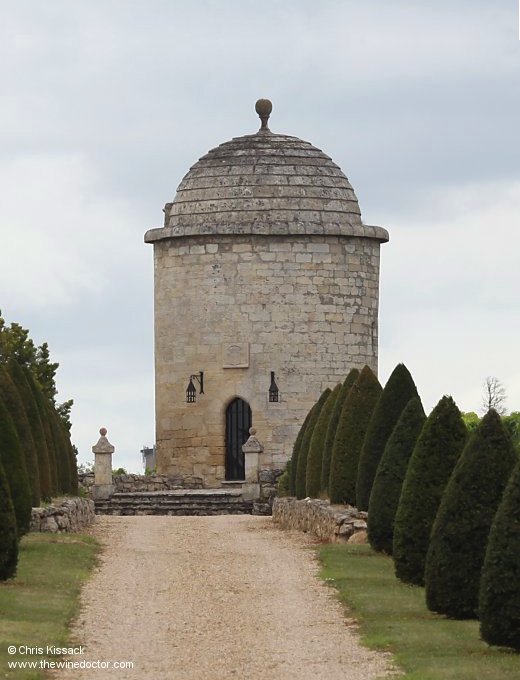ECLOGA IV - POLLIO
Sicelides Musae, paulo maiora canamus!
non omnes arbusta iuvant humilesque myricae;
si canimus silvas, silvae sint consule dignae.
ultima Cumaei venit iam carminis aetas;
magnus ab integro saeclorum nascitur ordo.
iam redit et Virgo, redeunt Saturnia regna;
iam nova progenies caelo demittitur alto.
tu modo nascenti puero, quo ferrea primum
desinet ac toto surget gens aurea mundo,
casta fave Lucina: tuus iam regnat Apollo.
teque adeo decus hoc aevi, te consule, inibit,
Pollio, et incipient magni procedere menses;
te duce, si qua manent sceleris vestigia nostri,
inrita perpetua solvent formidine terras.
ille deum vitam accipiet divisque videbit
permixtos heroas, et ipse videbitur illis,
pacatumque reget patriis virtutibus orbem.
at tibi prima, puer, nullo munuscula cultu
errantes hederas passim cum baccare tellus
mixtaque ridenti colocasia fundet acantho.
ipsae lacte domum referent distenta capellae
ubera, nec magnos metuent armenta leones.
ipsa tibi blandos fundent cunabula flores.
occidet et serpens, et fallax herba veneni
occidet; Assyrium vulgo nascetur amomum.
at simul heroum laudes et facta parentis
iam legere et quae sit poteris cognoscere virtus,
molli paulatim flavescet campus arista,
incultisque rubens pendebit sentibus uva,
et durae quercus sudabunt roscida mella.
pauca tamen suberunt priscae vestigia fraudis,
quae temptare Thetim ratibus, quae cingere muris
oppida, quae iubeant telluri infindere sulcos.
alter erit tum Tiphys, et altera quae vehat Argo
delectos heroas; erunt etiam altera bella,
atque iterum ad Troiam magnus mittetur Achilles.
hinc, ubi iam firmata virum te fecerit aetas,
cedet et ipse mari vector, nec nautica pinus
mutabit merces: omnis feret omnia tellus.
non rastros patietur humus, non vinea falcem;
robustus quoque iam tauris iuga solvet arator;
nec varios discet mentiri lana colores,
ipse sed in pratis aries iam suave rubenti
murice, iam croceo mutabit vellera luto;
sponte sua sandyx pascentes vestiet agnos.
'talia saecla,' suis dixerunt, 'currite', fusis
concordes stabili fatorum numine Parcae.
adgredere o magnos - aderit iam tempus - honores,
cara deum suboles, magnum Iovis incrementum.
aspice convexo nutantem pondere mundum,
terrasque tractusque maris caelumque profundum;
aspice, venturo laetantur ut omnia saeclo.
o mihi tam longae maneat pars ultima vitae,
spiritus et quantum sat erit tua dicere facta,
non me carminibus vincat nec Thracius Orpheus,
nec Linus, huic mater quamvis atque huic pater adsit,
Orphei Calliopea, Lino formosus Apollo.
Pan etiam, Arcadia mecum si iudice certet,
Pan etiam Arcadia dicat se iudice victum.
incipe, parve puer, risu cognoscere matrem;
matri longa decem tulerunt fastidia menses.
incipe, parve puer; cui non risere parentes,
nec deus hunc mensa, dea nec dignata cubili est.
Eclogue 4 ‘The Messianic’
The Field. Dear Sir: a somewhat larger theme.
Trees and mere hedgerows don't appeal to all;
Our Country Notes must grace the Capitol.
The prophesied 'last age' has now begun:
The mighty March of Time resumes from nil.
The Virgin and the Days of Old return;
A new breed comes among us from on high.
Childbirth! The prehistoric Iron Age
Will end, the Golden Age worldwide be born.
The Sun is King; so, Sister Moon, shine on!
In fact this glorious millennium
Will come while Ron presides, and under him
A pageant of great seasons will remove
The final traces of our infamy,
And free the globe from unremitting fear.
The boy will live a god's life: he will see
Heroes at ease with gods, and they'll see him
Rule, by his father's gifts, a world at peace.
For baby-toys the earth will offer him
Nature's profusion, romping ivy-leaves,
Acanthus, gipsy lilies, wild woodbine;
Goats with their milk will freely wander home,
Huge-uddered; herds won't fear great beasts of prey.
His cradle will be thick with pretty flowers;
Poisonous weeds and snakes will die the death
And cinnamon will come up everywhere.
He'll read uplifting stories, and the great
Deeds of his father; learn of excellence;
By then soft fields of corn will just grow gold,
Red grapes will hang along neglected paths
And solid oaktrees run with honeydew.
Few traces will survive of such old frauds
As Shipping, Agriculture and Defence;
Another helmsman with a chosen crew
Will man the Argo; there'll be other wars,
A Churchill, an Achilles back at Troy.
By his maturity, they'll quit the sea:
Pilots and merchant-ships will cease to trade.
All countries will produce all types of crop:
Ground won't be harrowed, grapevines won't be cut.
The sturdy ploughman will unyoke his bulls.
Wool won't be taught untruthful colouring:
The grazing ram himself will change his pelt
To mauve or saffron-yellow, and the lambs,
Browsing, will go spontaneously red.
'Roll on such times!' the spinning Fates decree,
In concert with Eternal Destiny.
Your hour has come: approach your rank and pomp,
Dear child of gods, awesome nativity.
See the world lurching with its high-curved load,
The land, the wide sea, heaven's mighty dome:
See them, ecstatic at the age to come.
I hope enough of life remains for me,
Breath enough to record what you will do:
With luck I'll lyrically outperform
Both Linus and the Thracian lutenist,
Even allowing them parental help,
Apollo and the Muse respectively!
Yes, Pan can take me on, his Fauns shall judge:
His Fauns shall judge, and Pan shall give me best.
Smile then dear child, and recognise - your mum!
She's had nine months of drawn-out tedium.
Smile for your mother, child, and you'll deserve
Feasts with the gods, a goddess for your love.
 St Emilion Balestard La Tonnelle - Credit Chris Kissack[/caption]
St Emilion Balestard La Tonnelle - Credit Chris Kissack[/caption]

 St Emilion Balestard La Tonnelle - Credit Chris Kissack[/caption]
St Emilion Balestard La Tonnelle - Credit Chris Kissack[/caption]
